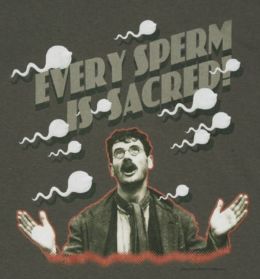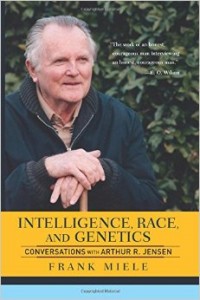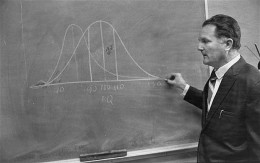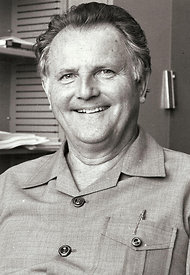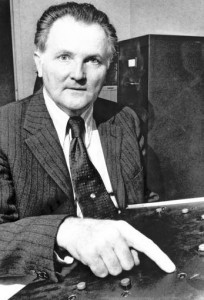The unprecedented use of artillery, airstrikes, tanks, and a whole arsenal of other weapons have destroyed much of the infrastructure in Gaza, but the war rages on, as the Palestinian fighters are well entrenched. The pattern has been that, after the bombardments cease and Israeli armored vehicles roll in, Gaza’s defenders emerge from their tunnel complexes and attack the Israeli soldiers, sometimes destroying their tanks and personnel carriers. (more…)
Tag: Marian Van Court
-
Part 5 of 5 (Part 1 here, Part 4 here)
Transcript by Hyacinth Bouquet. The following is a transcript of the fifth and final part of Marian Van Court and Arthur Jensen’s conversation, which can be heard here, or using the player below.
There are a few places where the recording is inaudible, and have been marked as such. If you can figure out what is being said, or if you have other corrections, please offer them in the comments below. (more…)
-
Part 4 of 5 (Part 1 here, Part 3 here, Part 5 here)
Transcript by Hyacinth Bouquet. The following is a transcript of the fourth part of Marian Van Court and Arthur Jensen’s conversation, which can be heard here, or using the player below.
There are a few places where the recording is inaudible, and have been marked as such. If you can figure out what is being said, or if you have other corrections, please offer them in the comments below. (more…)
-
-
Part 2 of 5 (Part 1 here, Part 2 here)
Transcript by Hyacinth Bouquet. The following is a transcript of the second part of Marian Van Court and Arthur Jensen’s conversation, which can be heard here, or using the player below.
Topics include:
IQ and common sense
Social intelligence as g + extraversion, or g + social experience (more…)
-
September 12, 2023 Arthur Jensen
Race & IQ Differences:
An Interview with Arthur Jensen, Part 16,126 words / 47:55
Part 1 of 5 (Part 2 here)
Marian Van Court recorded four-and-a-half hours of interviews with Arthur Jensen (1923–2012), who was then a Professor of Educational Psychology at the University of California at Berkeley, in 1986. Jensen was one of the great pioneers in the science of human biological diversity. The following is a transcript of the first part of their conversation, which can be heard here, or using the player below. The other parts can be heard here: Part 2, Part 3, Part 4, Part 5 (more…)
-
The Orville is a new science fiction/satire series created by Seth MacFarlane (Fox, 9 p.m., Thursdays). It takes place 300 years in the future, and MacFarlane is captain of a space ship, the Orville.
If Seth MacFarlane hasn’t read The Culture of Critique, he must have guessed what it has to say. (more…)
-
4,259 words
Part 4 of 4
Richard Lynn
I have no recollection of when I first got in touch with Richard Lynn except to say that it was a very long time ago. I remember mailing him various papers and clippings that I thought might be helpful to him at least as early as 1980. I’ve always felt it was my “civic duty” to help Richard in any way I can, because he was, and is, the world’s foremost eugenicist. (more…)
-
4,232 words
Part 3 of 4
Robert Klark Graham
Robert Klark Graham invented the plastic used for shatter-proof eyeglasses, and he made a fortune. After he sold his company, he began thinking about how he could use his money to help the world. He talked at length with Hermann J. Mueller, a Nobel Prize-winner in genetics, and they came up with the idea of a sperm bank that would store and distribute the sperm of exceptional men. They named it The Repository for Germinal Choice. (more…)
-
Part 2 of 4
University of California, Santa Barbara
In 1975, I was excited to begin the doctoral program in Psychobiology at UCSB. It was a far cry from the excellence of Berkeley, but then so were the vast majority of other places. I had always been interested in sex differences, so I began studying the effects of pre-natal hormones on masculine and feminine behavior. (more…)
-
2,927 words
Part 1 of 4
One Saturday afternoon when I was 12 years old, I was at home in Memphis sitting in our den, staring into space, when my father walked into the room.
“Marian, are you aware of the fact that intelligence is largely hereditary?” he asked. (more…)
-
3,110 words
Traducción por A. Garrido. Enlace original aquí
En 1516, Sir Thomas More publicó su ahora famosa obra, Utopia. Una de sus recomendaciones fue que las viviendas fueran construidas para grupos de unas 30 familias para crear pequeñas aldeas que compartieran instalaciones comunes, comidas, y cuidado de los niños. (more…)
